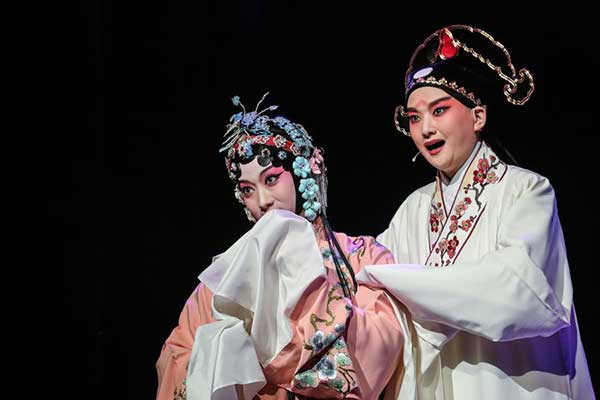Cultural confidence stems from talks with past
By Zhang Zhouxiang | China Daily | Updated: 2017-10-10 08:26
 |
| During 2017 Greece and China have organized several events to promote cultural exchange between the two peoples along cooperation in many other areas.[Photo/Xinhua] |
Editor's note: Dr Clemens Treter is the director of the Goethe-Institut China in Beijing. A fluent Chinese speaker and an expert on Chinese literature, he shared his views on the importance of cultural exchanges with China Daily's Zhang Zhouxiang:
What is your understanding of cultural exchanges?
In our understanding, cultural exchanges are for bringing people in specific fields together. So bringing theater people together with theater people, film people with film people, artists with artists, so they can learn what others are working on.
We basically provide a platform, so that they can exchange views. They can explore not only their own culture, but also the culture of the other country.
Why is it important for a country to have cultural exchanges?
They are not just one-off affairs, but investments in a long-term relationship. When we organize cultural exchanges, we listen to what the artists say, what they want to do, we then try to provide them with what they need to realize their ideas.
We are basically a means, a platform, providing a certain space for cultures to interact and develop relations.
Your institution is named after Goethe, a renowned philosopher in German history. Does traditional culture play a major role in your cultural exchanges?
It is always important to look back at traditional culture. But we are not a museum where we conserve our traditional culture.
If we refer to our traditions, it is always because we think these traditions are useful in the contemporary context. It is never just because it is a tradition; it must refer to something that is happening now.
How do you think China can promote cultural exchanges?
China has wonderful and very rich traditional philosophers, artists, poets and all of them differ greatly. There could also be a Zhuangzi Institute, maybe of a different nature.
If looking back at our own culture, there are many aspects, the language, the old language that has been said, that is said until today. They might give us a different way to deal with contemporary problems.
The Chinese leadership has been seeking to boost the nation's cultural confidence. What are your thoughts on this?
I think it is interesting. When you look at the Chinese artists that we work with, they have different experiences, different educations, but they are quite aware of the tradition that they are part of. For example, in performing arts, German actors' education is very much based on speaking, reading, and the voice; Chinese actors are more deeply rooted in body language. Physical movement plays a significant role in Peking and Kunqu operas.
If you know these traditions, you know where you come from and so can be much more confident in being part of that tradition. On the other hand, confidence should always be critical and always be combined with self-awareness.
























